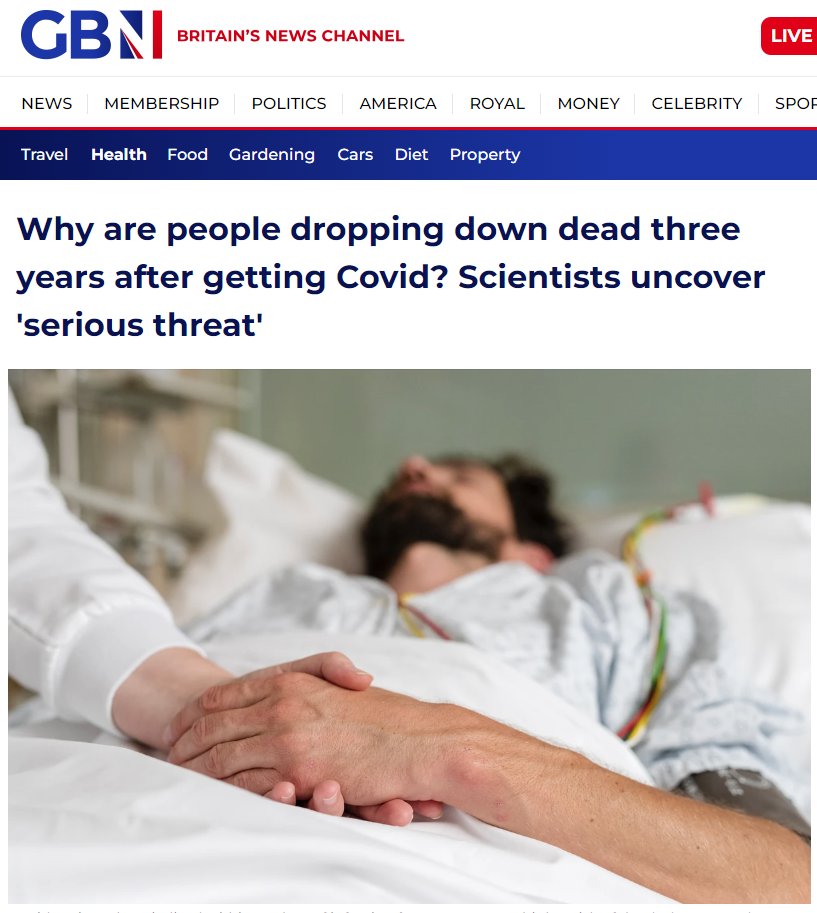GB news questions why are people dropping dead after Covid but fails to tell you that the cause is the vaccine. Instead, it keeps on selling you lies and the usual bullshit. Instead, it quotes senior author Ziyad Al-Aly, MD, a Washington University clinical epidemiologist and a global leader in long COVID research, the usual paid-for ‘experts.’
For the mainstream media and these ‘experts’ everything can be the cause except the elephant in the room.
“Researchers from Washington University School of Medicine in St. Louis and the Veterans Affairs St. Louis Health Care system have found COVID-19 patients who were hospitalised within the first 30 days after infection face a 29 percent higher risk of death in the third year compared with people who have not had the virus.
However, the three-year death risk still marks a significant decline compared with such risk at the one- and two-year marks post-infection.
The findings also show that even people with mild COVID-19 were still experiencing new health problems related to the infection three years later.
What explains this phenomenon?
‘We aren’t sure why the virus’s effects linger for so long,’ said senior author Ziyad Al-Aly, MD, a Washington University clinical epidemiologist and a global leader in long COVID research.
‘Possibly it has to do with viral persistence, chronic inflammation, immune dysfunction or all the above. We tend to think of infections as mostly short-term illnesses with health effects that manifest around the time of infection. Our data challenges this notion. I feel COVID-19 continues to teach us — and this is an important new lesson — that a brief, seemingly innocuous or benign encounter with the virus can still lead to health problems years later.’
Al-Aly’s prior research has documented COVID-19’s damage to nearly every human organ, contributing to diseases and conditions affecting the lungs, heart, brain, and the body’s blood, musculoskeletal and gastrointestinal (GI) systems.
Such studies with longer follow-up are limited, said Al-Aly, a nephrologist who treats patients at the Washington University-affiliated John J. Cochran Veterans Hospital in midtown St. Louis.”


